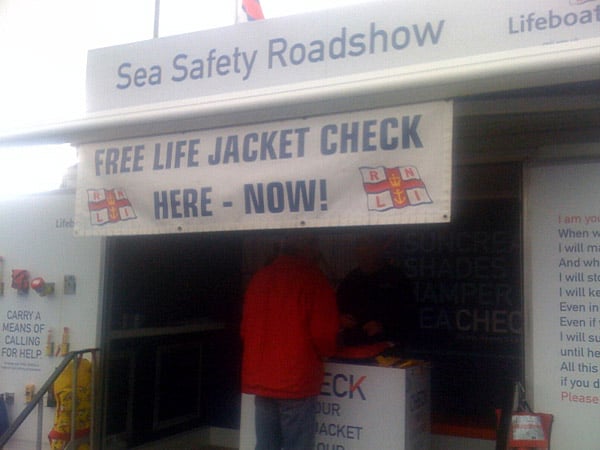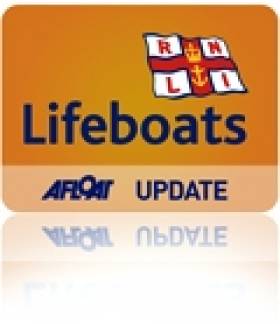Displaying items by tag: lifejacket clinic
Free Lifejacket Check in Dun Laoghaire Today
With the summer boating season coming to a close, the RNLI’s Sea Safety team is back in Dun Laoghaire this morning and people who use the water are being invited to get their lifejackets checked out for free and find out more about this vital piece of boating kit.
It's an ideal opportunity to get the jackets checked before putting them away for the winter or indeed before the start of the different winter series on the Bay.
The RNLI carried out a similar service during the summer and on that occasion Over 90% of lifejackets tested at Ireland's two biggest sailing centres failed the simple checks.
From 91 jackets tested in Cork and Dublin, 83 failed the free inspection.
The annual Lifejacket check service carried out by the institute was only taken up by 40 sailors from an estimated 1,000 competing crews at Cork week. 35 failed the test.
The RNLI lifejacket clinic took place yesterday at Dun Laoghaire marina and takes place again today.
The RNLI’s lifejacket campaign, first launched in June 2007, aims to encourage all who go to sea in their leisure time to always put their lifejackets on when going to sea, and then decide when (if at all) to take it off.

RNLI Divisional Sea Safety Manager, Nicola Davies, explains:
‘A lifejacket is useless unless worn, if it is worn incorrectly or if it is not in full working order. It’s much safer to get into the habit of wearing a lifejacket at all times when afloat, because it means you’ll be familiar with your particular lifejacket and how to operate it should an emergency situation unfold. In the summer months when boat owners may take family and friends who don’t often go afloat, it’s even more crucial to ensure that all on board, including babies and children, are wearing a well-fitted lifejacket.
‘A correctly fitting lifejacket will keep you afloat so that, should you end up in the water, you have time to overcome the initial shock and you can begin to think about survival. It will also keep your airways clear of the water, which is absolutely crucial because it only takes just a cup full of water in the lungs to make survival difficult and just over a litre to drown. A lifejacket also buys you time, this will allow for the search and rescue services to come to your aid. Our advice is not meant to spoil the fun of water users, but it is founded on the years of experience of RNLI lifeboat crew who know how unpredictable the weather can be and how quickly things can go wrong at sea.’
Lifejackets should not only be worn, but they need regular maintenance checks too. They should be stored in a dry, well-aired area when not in use. RNLI Sea Safety managers and volunteers around the coast of the UK and Ireland found that almost 35 per cent of lifejackets they’ve looked at during RNLI Sea Checks would, in their opinion, fail to operate.
Related Safety posts
RNLI Lifeboats in Ireland
Safety News
Rescue News from RNLI Lifeboats in Ireland
Coast Guard News from Ireland
Water Safety News from Ireland
Marine Casualty Investigation Board News
Marine Warnings
























































